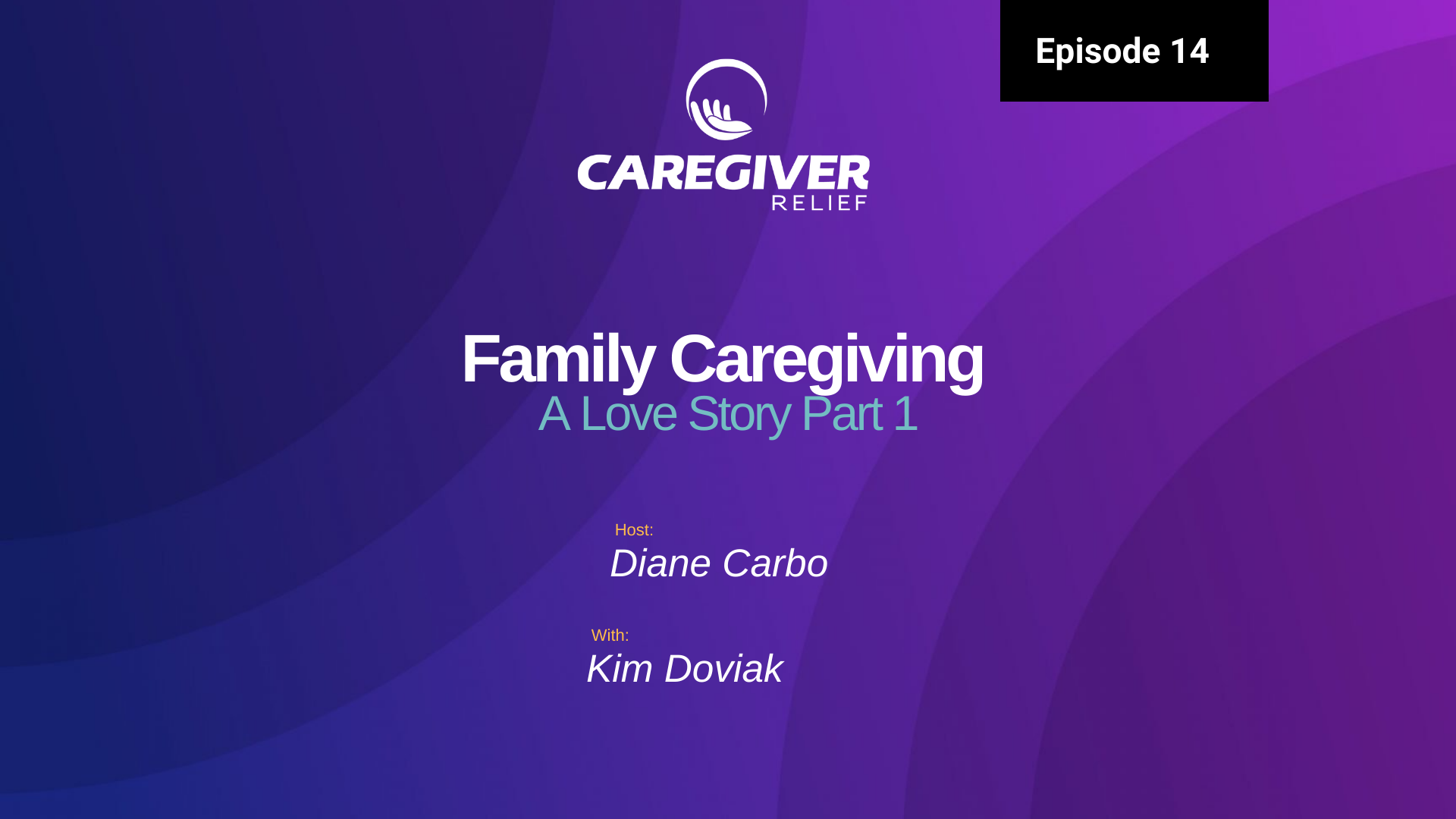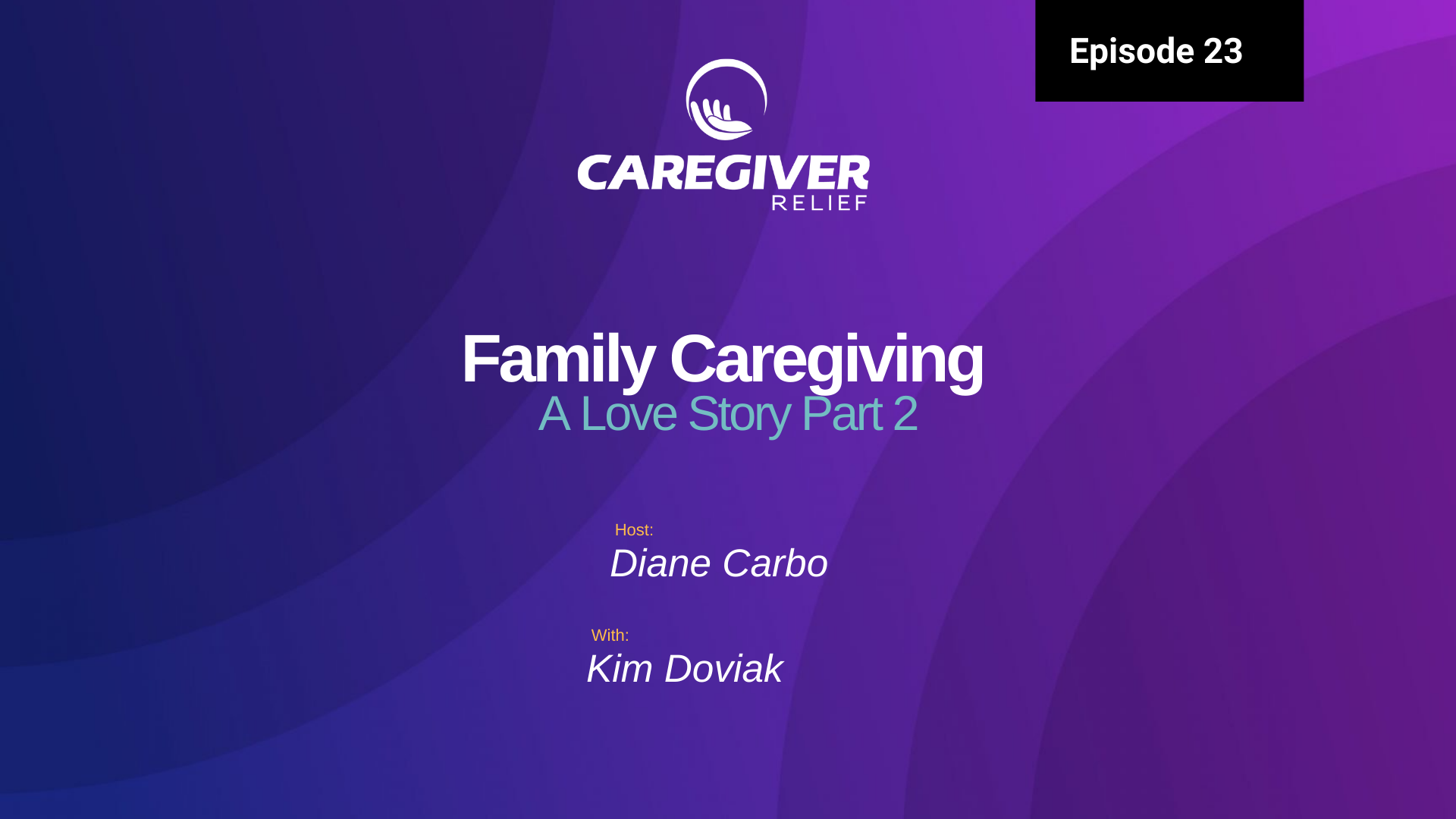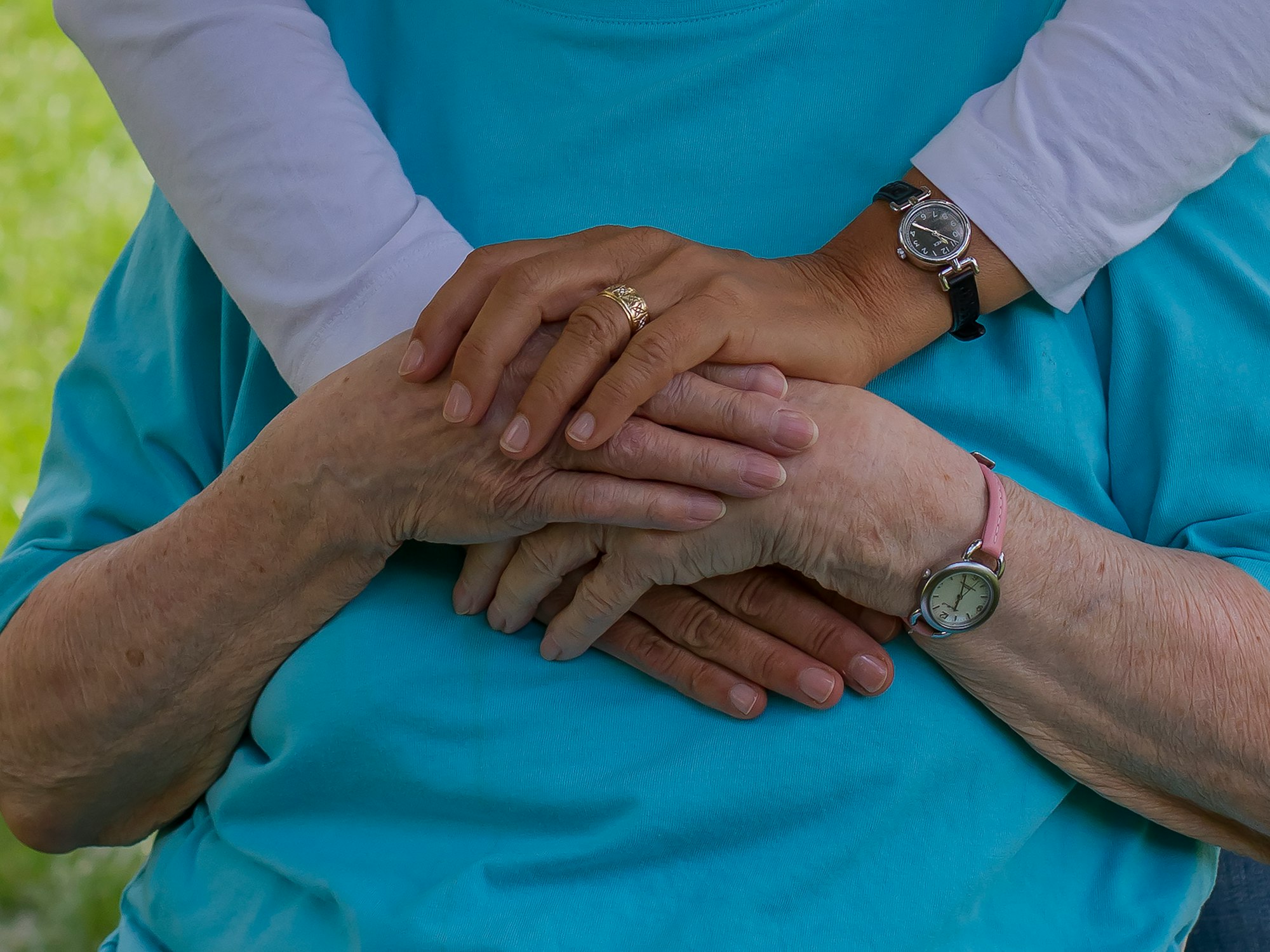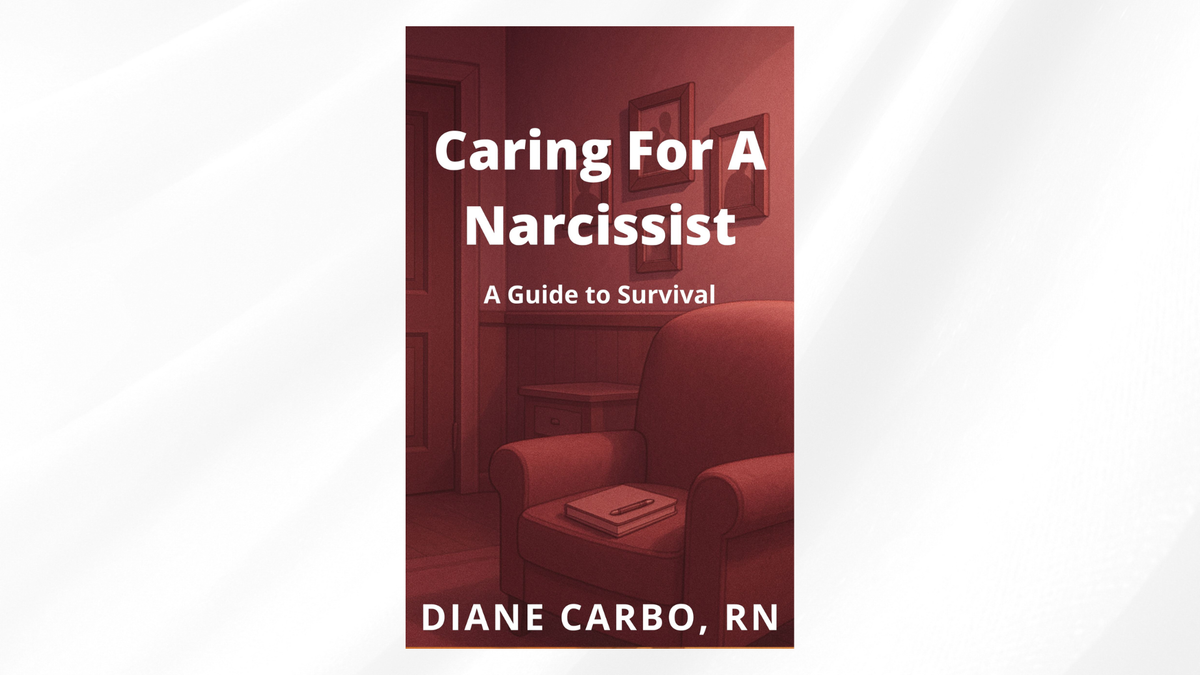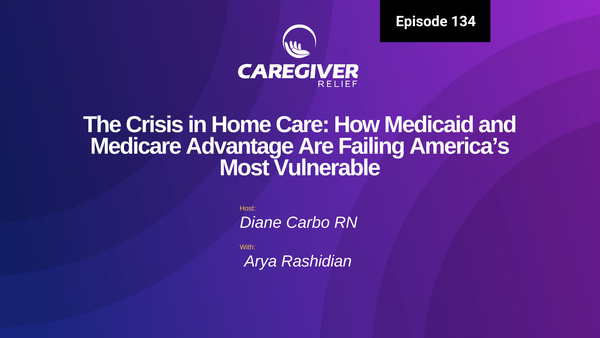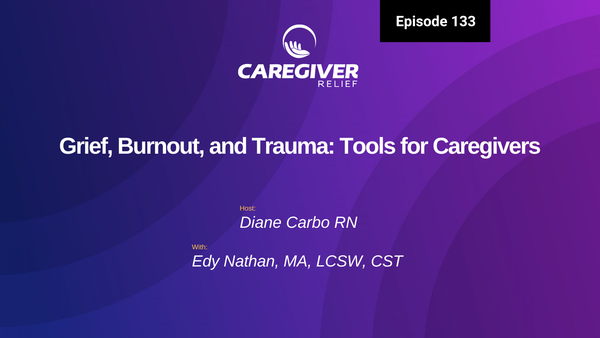Caring for a Parent, Healing Yourself: EBT for Family Caregivers - Episode 113
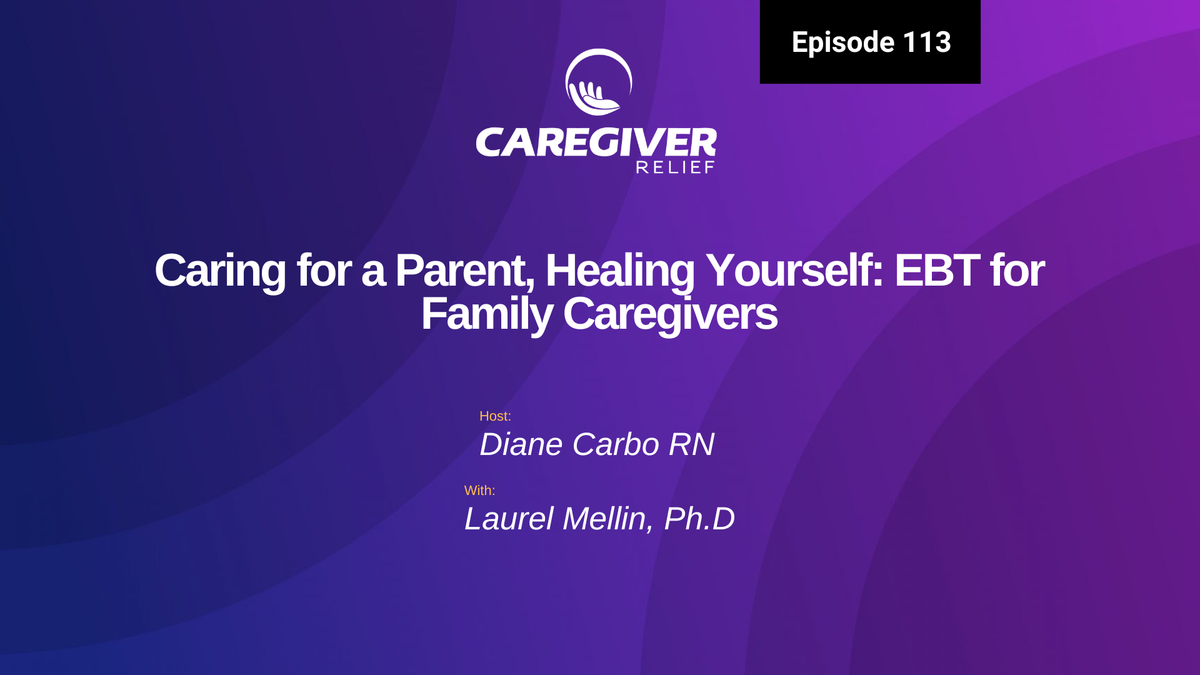
Are you a family caregiver feeling overwhelmed, burned out, or stuck in a relentless cycle of stress? Do you ever feel like you're losing yourself while trying to care for a loved one? If so, you're not alone, and this episode of the Caregiver Relief Podcast is for you. ❤️
Host Diane Carbo sits down with Dr. Laurel Mellin, a health psychologist and the founder of Emotional Brain Training (EBT), to discuss a revolutionary, science-based approach to managing caregiver stress. Dr. Mellin, who cared for her own father for nine years, shares how EBT can help you move from a state of stress overload to genuine joy, often in just a few minutes.
This isn't just about managing stress—it's about rewiring your brain for resilience and healing yourself in the process.
What You'll Discover in This Episode:
In this profound conversation, Diane and Dr. Mellin dive deep into the tools you need to thrive, not just survive, as a caregiver.
🧠 The "Silent Health Crisis": Learn why the unique stress of caregiving, rooted in love and our biological drive to protect loved ones, can be so damaging to our health.
💡 What is Emotional Brain Training (EBT)?: Discover how EBT differs from traditional methods like mindfulness and positive thinking. It’s not about changing your thoughts; it’s about rewiring the "stress circuits" in your emotional brain that get stuck in the "on" position.
⚡ The 5 Brain States: Dr. Mellin explains the five levels of stress in the brain. Once you cross the line into higher stress levels (3, 4, or 5), the thinking brain goes offline, and traditional stress management fails. That’s when you need a new tool.
📱 The EBT App in Action: Learn how the EBT app guides you to process emotions in a specific sequence (protest, anger, sadness, fear, and guilt) to shut off a stress circuit and activate a "joy circuit" in under five minutes.
🫂 Overcoming Guilt & Shame: EBT provides a powerful framework for processing difficult emotions like guilt, grief, and resentment without shame. Dr. Mellin explains the crucial difference: shame says "I'm a bad person," while guilt asks, "What was my part in this?" turning it into a tool for empowerment.
🗣️ Setting Healthy Boundaries: Discover the "EBT Sandwich," a brain-science-based technique for making requests and setting boundaries effectively, fostering intimacy in your relationships rather than resentment.
✨ The Power of Community: Find out why connecting with peers in "Spiral Up" groups is so vital. The emotional brain is the social brain, and these connections can become a true lifeline for caregivers.
Memorable Quotes from Dr. Mellin
"The circuits that make you overgive and then have a backlash of behaving in ways that you wish you had not are in your unconscious mind. They were put there through no fault of your own. So there is no shame."
"When you're at Brain State five... you open that tight fist of over control... And you say to the spiritual, however you define it, 'Here to be of service'... something magical happens in that moment."
"If you're not in joy, if you're not at brain state one, you need to exercise. You need to exercise your arm, and you need to reach for your app."
About Our Guest
Dr. Laurel Mellin is a health psychologist, New York Times bestselling author, and the founder of Emotional Brain Training (EBT). For over four decades, she served as an associate professor at the University of California, San Francisco, researching the neuroscience of stress and resilience. Her mission is to provide everyone with the tools to take charge of their emotional brain and live a life of joy.
Learn more and get the app at ebt.org.
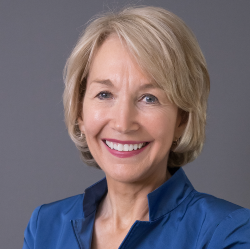
You are the most important part of the caregiving equation. This episode is a must-listen for any caregiver who is ready to find relief, reclaim their peace, and build a more resilient, joyful life.
Caring for a loved one can be overwhelming — but you're not alone. If you have questions, big or small, our expert team is here to help.
👉 Click here to Ask the Expert
Our Resource section can help you find the information and tools that you need. We have courses, videos, checklists, guidebooks, cheat sheets, how-to guides and more.
You can get started by clicking on the link below. We know that taking care of a loved one is hard work, but with our help you can get the support that you need.
Click here to go to Resource Section now!
You might also like this article:
